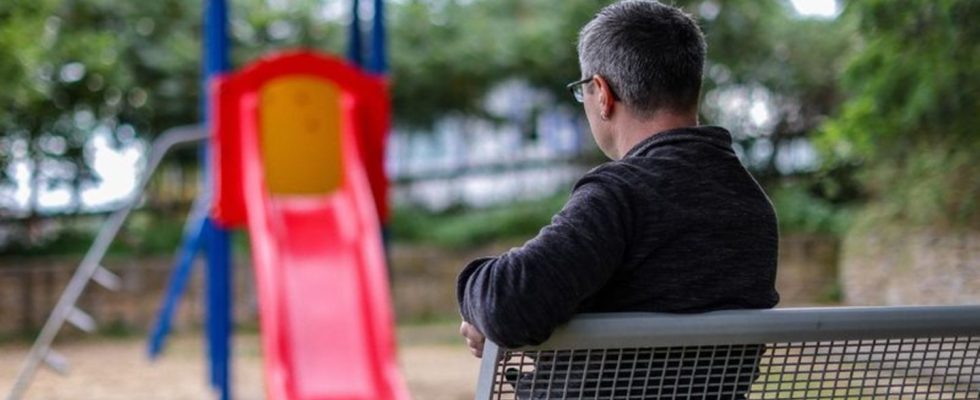Who can be the legal father? The Federal Constitutional Court is hearing this today. But what does it actually depend on whether a man becomes a father figure? Researcher Lieselotte Ahnert explains.
One lives with the child, the other fathered it. Which man is the father now? While legally there can only be one, new family constellations can bring several fathers into the picture. Some have to fight for their position.
The question of who can be the legal father is today before the Federal Constitutional Court. It is negotiating the constitutional complaint of a 44-year-old from Saxony-Anhalt, who, as the biological father of a son, wants to challenge the legal paternity of another man – but is not allowed to do so under the law because the other – as the mother’s new partner – has a so-called social has a family relationship with the child.
This is assumed, for example, if the man has lived with the child for a long time. The legal regulation aims to protect such communities from disruption. The biological father, on the other hand, sees his fundamental rights violated.
Legal, biological and social fathers
“From a social science perspective, there is basically no one understanding of fathers,” says Kim Bräuer, father researcher and professor at the Schleswig-Holstein Cooperative State University. Science distinguishes between a legal, biological and social father.
“What makes the father social is that he has a close emotional bond with the child,” explains Bräuer. He does not necessarily have to be legally or biologically connected to the child.
According to Bräuer, there can certainly be several social fathers for a child. “In social reality there are many constellations in which there are several men who look after a child and take on paternal tasks,” says the researcher. Family relationships are becoming increasingly diverse. In the case before the Karlsruhe court, according to the complainant, the child also calls both men “dad”.
Multiple fathers for children are no problem
According to developmental psychologist Lieselotte Ahnert, multiple fathers are not a problem for children and do not have a negative impact on the development of bonds. “Children can build multiple bonds, side by side,” explains the visiting professor at the Free University of Berlin.
The relationships are relatively independent of each other. Children with a biological father and a social father would not constantly make comparisons between the two.
According to Ahnert, whether a biological father is also recognized as a legal father is not that important from the child’s perspective. “The basis of bonds are interactions,” says the psychologist. “The question of social or biological father is really secondary.”
The fathers’ perspective
For a father, however, the legal assignment can be relevant – especially because the possibility of custody depends on it. The Fathers’ Awakening for Children Association is of the opinion that a biological father should have priority over a purely social father.
“At least if he has made sustained efforts to maintain contact with the child since he became aware of his biological paternity and does not pose any danger to the child,” says Elmar Riedel from the Federal Executive Board. “Referring access rights to the biological, non-legal father does not do justice to the father-child relationship.”
Try to make contact – this is also what the father, with whom the Federal Constitutional Court is dealing with, is doing. He has had to assert his right to contact with his son in court several times.
Fathers are spending more and more time with their children
Researcher Ahnert notes that interaction is a central point in the father-child relationship. “Every bond is tied to affection. And that takes time,” she writes in her book “It’s the fathers who matter.”
The father-child bond also depends on how much time a father can take for his child – and on how he specifically uses this time. Studies show that the time fathers spend on childcare has continuously increased, Ahnert continues.
In the 1950s and 1960s, a good father could also be an “absent father” as long as he provided financial security, says social scientist Kim Bräuer. In her study of fathers at the TU Braunschweig, which was published in February, a new picture emerged:
59.5 percent of fathers said that the most important quality of a good father is that he gives the child affection. Only 1.4 percent saw a good father primarily as offering the child financial security.
Bräuer does not see a hierarchy between legal, social or biological father: “Ultimately, a child can only decide emotionally for themselves who is the most important father for a child.”

